
Warren Scheidt allows Indiana’s challenging beverage alcohol laws to work to his advantage. The co-owner of 12-unit Cork Liquors in the southern part of the state, Scheidt has used his savvy business and leadership skills to gain a competitive edge over the myriad retailers with whom his stores vie for customer loyalty. Whether it’s buying wine and spirits in bulk at a discount and storing at Cork’s main store in Columbus or installing large walk-in beer caves with the ability to stock twice as much beer as comparable retail space, Scheidt doesn’t pass up an opportunity to stay one step ahead of his rivals. For his business acumen and pioneering spirit in a difficult marketplace, Scheidt has been named a 2017 Market Watch Leader.
Combined sales at Cork’s stores in Columbus, Shelbyville and Greensburg increased last year, Scheidt says, although he won’t disclose annual revenue. Beer accounts for 45 percent of the chain’s sales, followed by spirits at 31 percent and wine at 18 percent. Miscellaneous products—including tobacco, snacks and barware—represent the remaining 6 percent. Stores range in size from 2,000 to 13,000 square feet, with most of the units averaging about 4,000 square feet. In addition to Scheidt, Cork’s management includes his brother, Don, who is a co-owner and oversees property leases, purchases and loans; Warren’s son, Travis, who serves as general manager; Warren’s daughter, Allison Lykins, who’s the business manager; and Warren’s son-in-law, Logan Lykins, who serves as the spirits buyer.
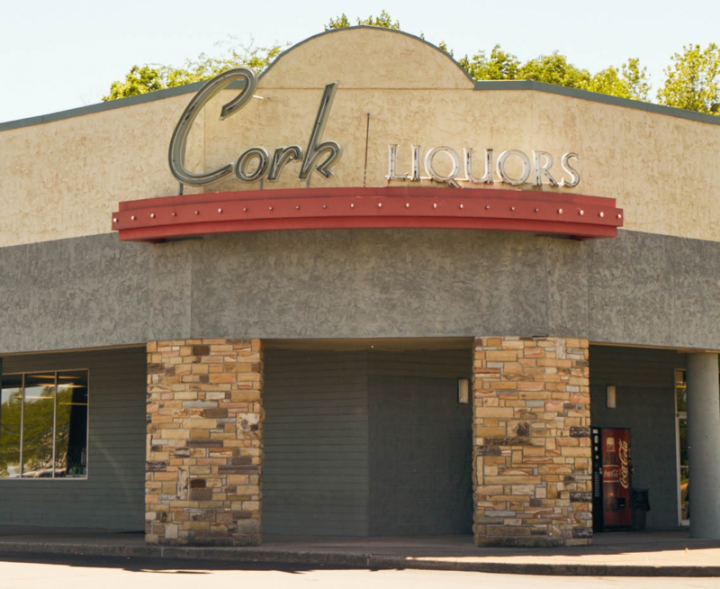
Fierce Competitive Landscape
The beverage alcohol retail industry in Indiana is fiercely competitive, with national players ranging from Walmart, Walgreens, Kroger and CVS to national and regional convenience store chains selling beer, wine and spirits. Bars and restaurants can also sell beer for carryout sales. In addition to Cork Liquors, the state boasts a number of successful liquor store chains, including Big Red, Crown, 21st Amendment and Payless. As such, Scheidt remarks that it’s critical to order product in bulk at the lowest possible price, stock each store with the right selection for that neighborhood and constantly monitor sales trends. The only edge that Indiana liquor stores have over other trade channels is the ability to sell cold beer. Yet Scheidt points to continued efforts by convenience and grocery retailers to be given that right.
Scheidt, his brother, and their parents, Virgil and Bettie, established Cork Liquors in Columbus, Indiana—45 miles south of Indianapolis and 60 miles north of Louisville, Kentucky—in 1982. “My father always wanted to own a package store,” Scheidt recalls. Farmers at the time, all the family members pitched in to run the store and the farm. But by 1986, Warren Scheidt decided to devote all his efforts to the promising liquor store business, and in subsequent years, he obtained additional permits in the city. By 2006, the company held the rights to all seven liquor store licenses in Columbus, which Scheidt describes as a “very progressive, modern city, with a large commercial and industrial base.”
Ten years ago, Scheidt and his brother bought out their parents’ interest in the business and began expanding the concept into Shelbyville, about 20 miles south of Indianapolis. Since then, the company has added three more units in Shelbyville, including Cork Liquors’ newest 4,000 square-foot store, which opened last fall. A store in rural Greensburg opened in 2012.
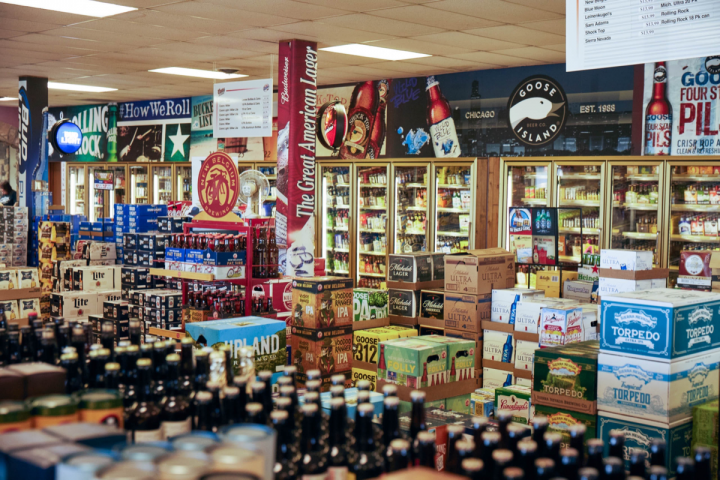
Craft On The Rise
Beer sales at Cork Liquors are “growing organically,” Scheidt says. The stores offer approximately 1,500 beer SKUs, priced from 99 cents a 12-ounce can of Boxer lager to $39.99 a 750-ml. bottle of Cascade Brewing’s Manhattan NW ale. Major domestic brews like Bud Light ($6.49 an eight-pack of 16-ounce cans) represent most of the company’s beer sales, but craft brews—particularly IPAs—are driving the category’s growth. Columbus’s young professionals are good targets for craft brews.
“On Thursdays, when we get most of our craft beers in, they’re waiting for the truck to get unloaded,” Scheidt says, noting that beers from Indiana breweries, such as 3 Floyds, Sun King and Upland, perform particularly well. “We can’t get all the beer that we could sell. They’re very high-quality products and have good name recognition.” Like other Indiana package stores, Cork Liquors charges a premium for cold beer—about $1 a case more than warm beer—to cover costs associated with coolers, electricity and handling.
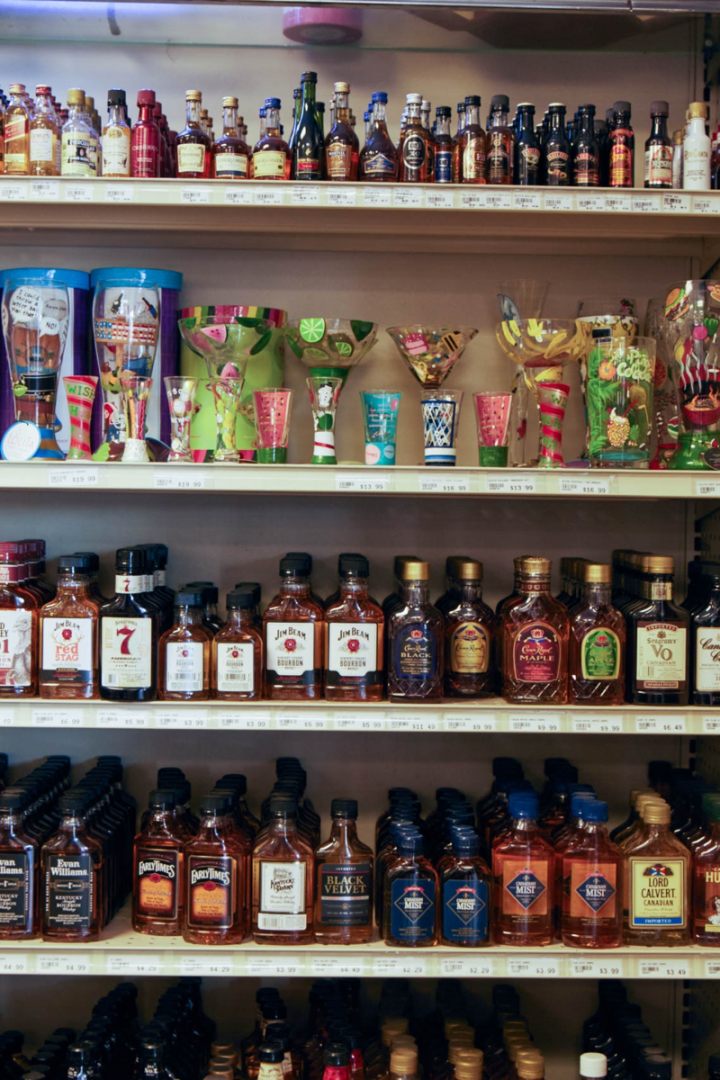
While wine is the smallest beverage alcohol category for Cork Liquors, Scheidt says sales are increasing, particularly among millennial consumers. The stores offer about 2,200 wine SKUs, priced from $5.48 a 750-ml. of Barefoot Chardonnay to $297.99 for Armand de Brignac Brut Champagne. Cabernet Sauvignon is the best-selling varietal at Cork, but Moscatos and rosés also fare well. “Indiana now has more than 70 wineries, so sales of our local wines are increasing,” Scheidt notes. Among the Indiana wines recently promoted at Cork Liquors was Simmons Autumn Sweet red ($11.99 a 750-ml.).
Several Cork locations offer cigars, including the original and largest location in Columbus, which is home to a walk-in humidor. About 100 premium cigars are available, priced from $5.99 to $17.99 each. “Cigar sales are strongest from May 1st to December 31st,” Scheidt says. “The golfing season really helps.”
Driven by whisk(e)y—especially Bourbon—spirits are performing well at Cork Liquors. The chain offers about 2,400 spirits SKUs, priced from $6.49 a 750-ml. of Kentucky Gentleman to $317.99 for Johnnie Walker Blue. Bourbon offerings are extensive, reaching up to some 500 SKUs, the retailer says, with prices ranging from $8.99 a 750-ml. of Kentucky Tavern to $107.99 for Jefferson’s Ocean. Vodka selection is also vast, consisting of more than 400 SKUs, priced from $6.99 for Skol to $75.99 for Stoli Elit. Scheidt notes that locally produced craft spirits are just beginning to emerge in southern Indiana and aren’t yet a significant factor. At the other end of the price scale, Cork has no need to market private-label spirits. “If you buy at the right quantity, you can usually get the name-brand products at the same price as private label,” Scheidt explains.
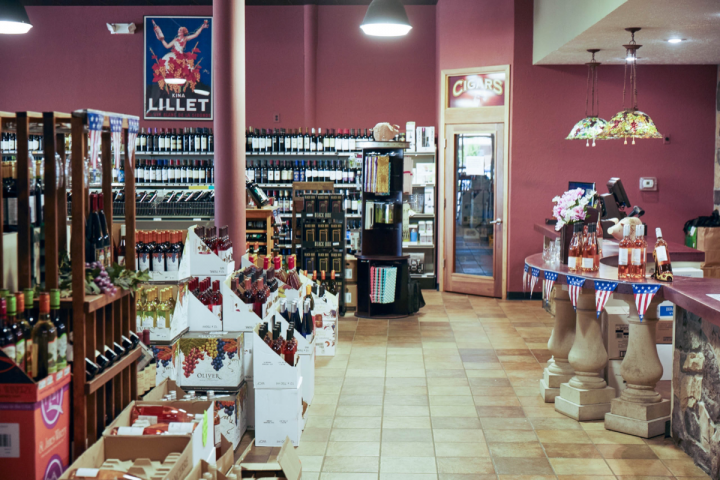
Smart Purchasing
Customer demographics and product selection vary by location. “We work on having the products in store that serve that area,” Scheidt says. As a result of the chain’s ability to purchase wine and spirits in bulk, deliveries are made to the large Columbus store and then distributed to the smaller stores twice a week. “We can strictly control inventory in all of our stores, allowing for a wide selection,” Scheidt explains. “Yet, there’s no need to double- or triple-face stock because it can be quickly replenished.” Beer is delivered directly to the individual stores.
With 35 years of experience in beverage retailing, Scheidt has learned how to merchandise efficiently. For example, some of the stores—including the new Shelbyville location—feature combination beer caves and coolers with sliding electric doors. Fast-selling domestic brews are merchandised in the caves, where customers can help themselves, while crafts and imports are available through display doors. “We’re able to stock the same amount of product in our 4,000-square-foot store as in our 8,000 square-foot store,” Scheidt says.
Beer shoppers can also create their own six-packs at Cork stores from 70 different brand options for $9.99 a six-pack, while cocktail fans can find all the necessary ingredients for monthly featured cocktails on in-store “recipe carts.” Regular promotions include 10-percent discounts on any four craft beer four- or six-packs, 10-percent off any six bottles of wine, and 10-percent off most wines on Wednesdays.
In-store tastings, meanwhile, are quite common at Cork Liquors. “We try to have tastings as often as we can,” Scheidt notes. “We require that for any new wine, beer or spirits brand, suppliers or distributors offer tastings.” Industry personalities have even made appearances at Cork stores, including Jim Beam master distiller Fred Noe and winemaker Carol Shelton from Carol Shelton Wines.
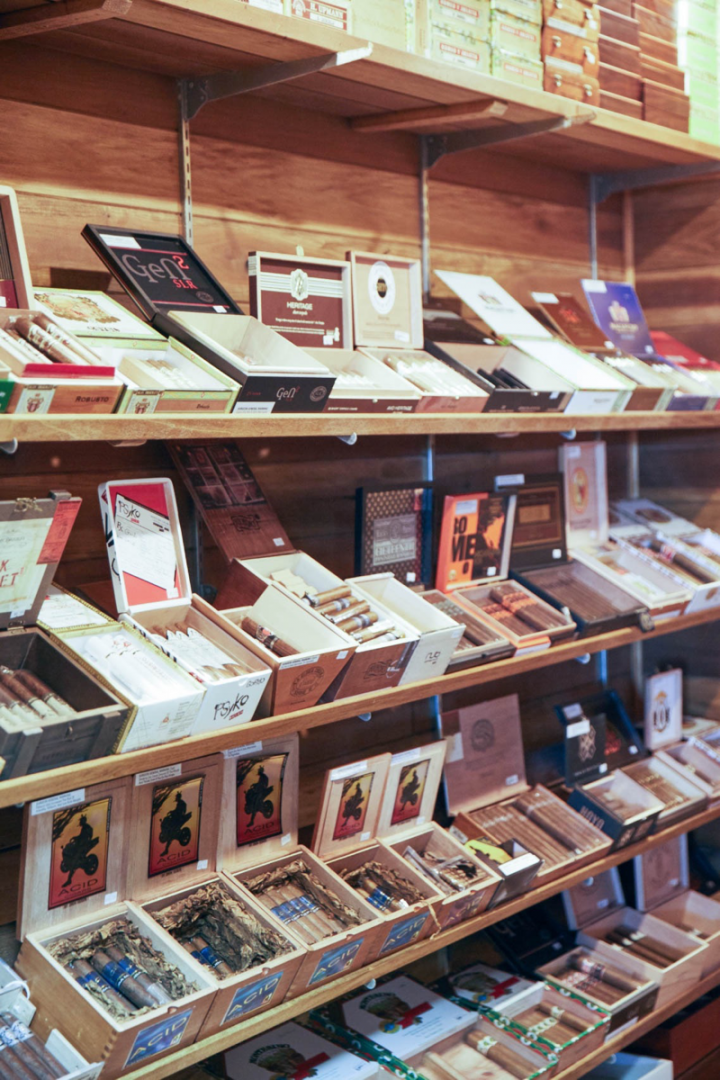
While Cork Liquors doesn’t sell beverage alcohol online, digital marketing is becoming a bigger tool for the chain. In addition to its website, Corkliquors.com, the company employs social platforms like Facebook, Twitter and Instagram. “You have to constantly work at social media,” Scheidt says. “It’s challenging, but it’s the way of the world now.”
Responsible Retailer
In addition to operating Cork Liquors, Scheidt has been very active in industry organizations over the years and completed a two-year term as American Beverage Licensees (ABL) president earlier this year. “ABL supplies all types of on- and off-premise operations with a national voice and disseminates accurate information to members for use in any state battles,” he says. “It provides a good service for its members.” Scheidt’s involvement with the trade group has given him a bird’s eye view of the challenges his peers face in Indiana and nationally. “Our business is highly regulated,” he says. “Some folks say it’s not a free-market system, but alcohol is not a free-market product. It can be abused, and responsible retailing is necessary.”
The possibility of changes to existing regulations concerning beverage alcohol makes Scheidt cautious when planning future growth. While he would like to renovate some of the chain’s older stores and is looking at opportunities for new locations, he notes that it’s a very challenging time for retail. Still, Scheidt takes pride in what he’s accomplished. “Ive been in this business for 35 years, and I enjoy it,” he says. “We’re now a third-generation business.”